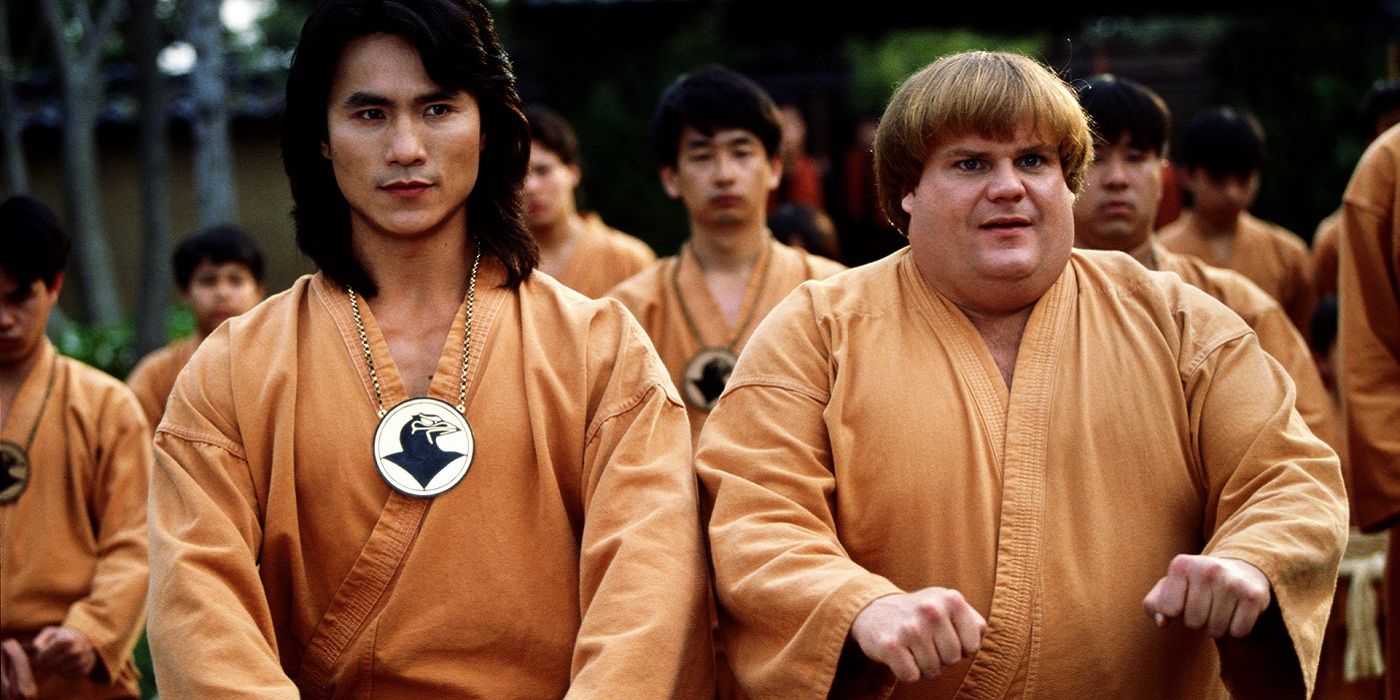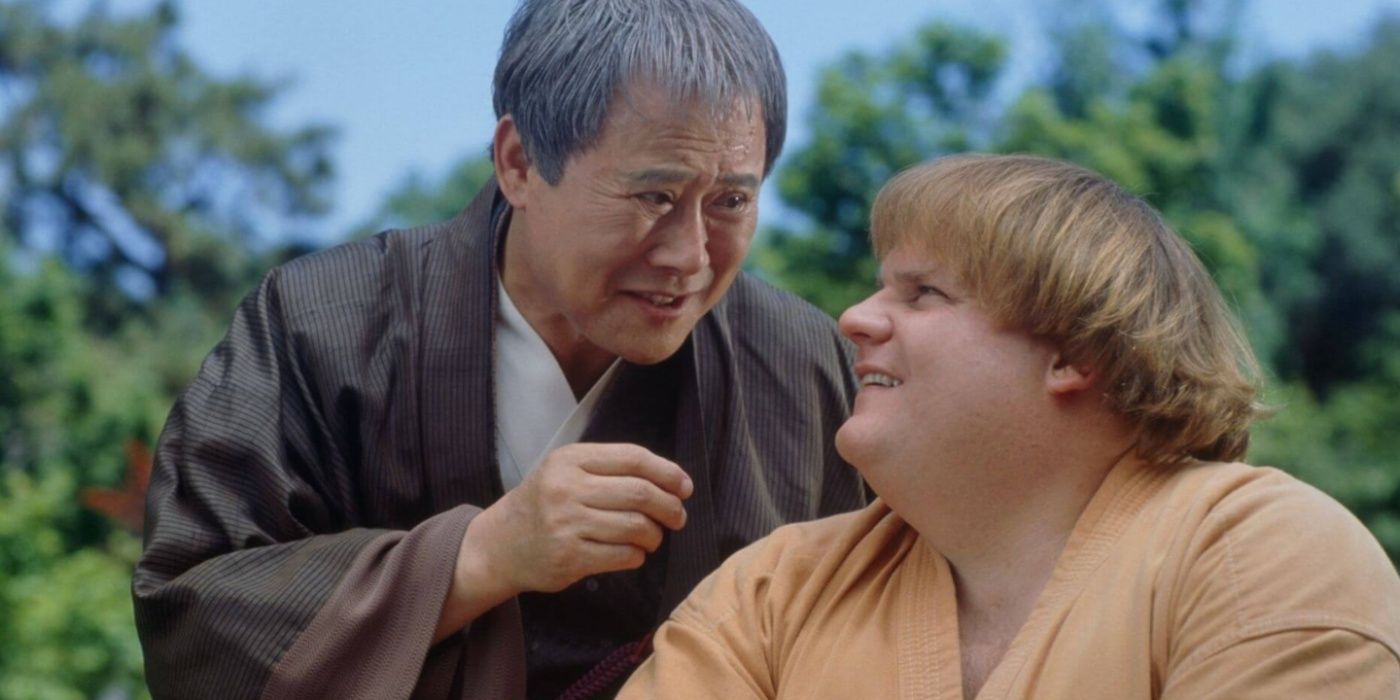
The Untold Story of Beverly Hills Ninja 2: Legal Battles, Controversies, and Unmade Sequels

Uncover the behind-the-scenes drama and legal battles of the unmade sequel to the cult classic Beverly Hills Ninja, featuring Chris Farley.
The Legacy of Beverly Hills Ninja
Beverly Hills Ninja, released in 1997, is remembered as a comedic romp featuring the late Chris Farley in a winning blend of martial arts and humor, and Beverly Hills Ninja 2 was briefly in development too. The original film follows inept ninja Haru (Farley), an American raised by a clan of martial artists in Japan when he washed ashore as a young boy, who finds himself on a comical adventure in Beverly Hills. Despite poor reviews from critics, the movie gained a cult following, thanks to Farley's physical comedy and the blending of Eastern martial arts with Western comedy, and Beverly Hills Ninja is even Christian Bale's favorite movie.
Chris Farley and Robin Shou in orange uniforms, training, in Beverly Hills Ninja
Years later, the prospect of a sequel emerged, and despite being one of Chris Farley's best movies, there was an unexpected twist: following Farley's death in 1997, David Hasselhoff was set to replace the Saturday Night Light alum as the lead in 2008 (via Empire). This decision marked a significant shift from the original film's tone and style, generating both curiosity and skepticism among fans and industry insiders. However, Beverly Hills Ninja 2, embroiled in legal issues and controversies, never saw the light of day, leading to a series of lawsuits that exposed the tumultuous behind-the-scenes drama of the unmade sequel.
Haru (Chris Farley) training in Beverly Hills Ninja
Legal Battles and the Co-Writer's Lawsuit
Mitchell Klebanoff, who co-wrote the original Beverly Hills Ninja with Mark Feldberg, was initially involved in the sequel's development as the director. However, Klebanoff found himself in the midst of a legal battle when Korean investors, who had acquired the franchise rights from Sony, terminated him from the project (via THR). In response, Klebanoff filed a lawsuit against these investors, leading to a contentious legal dispute. An arbitrator ultimately sided with Klebanoff, determining that his termination as director was not properly executed. As a result, he was awarded nearly $262,000 in compensation.
This lawsuit highlighted the complex and often challenging nature of international film production and rights management, especially in a sequel to a beloved comedy. Amidst this legal turmoil, another lawsuit emerged, filed by Jay So, a producer allegedly contracted for the sequel. So's legal action shed light on the intricate and often opaque world of film production agreements and the challenges faced by producers in securing their rightful compensation and recognition.
Producer's Compensation Dispute
Jay So, a graduate of the American Film Institute with a notable background in film production, entered the Beverly Hills Ninja 2 project with high expectations. Contracted by Klebanoff and the Korean investors, So was promised a $100,000 up-front fee, a credit, and backend participation. His involvement was significant, encompassing sourcing investors, setting up the production entity 'Beverly Hills Ninja 2, LLC,' and engaging with various industry entities, including Sony and visual effects companies. However, So's journey with the project took a turn when Klebanoff and investor Jungho Han altered the production entity's name to 'BHN2, LLC' and replaced So without his consent.
This led to So's exclusion from Beverly Hills Ninja 2 and the denial of his contracted fee. Despite sending a formal demand letter in December 2008 for his producer fees, So faced challenges in receiving his due compensation. His lawsuit raises questions about the statute of limitations on his claims and delves into the complexities of film financing and producer rights. So's pursuit of both compensatory and punitive damages, represented by Jessica Trotter, highlights the often precarious position of producers in the film industry, especially in projects fraught with financial and legal complications.








